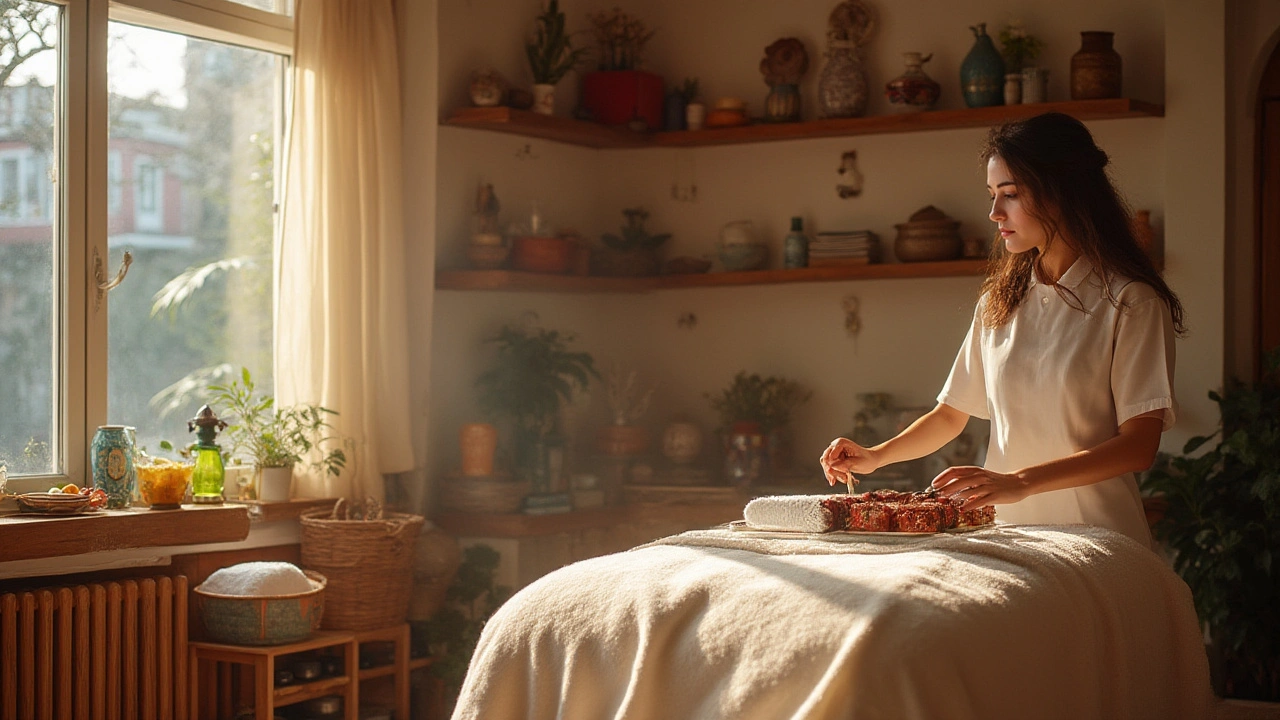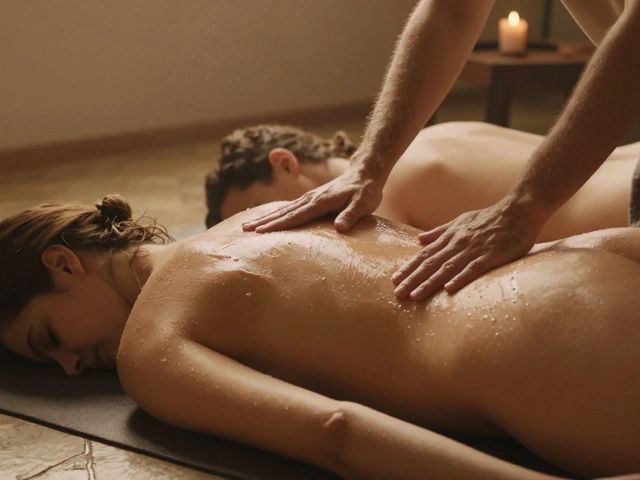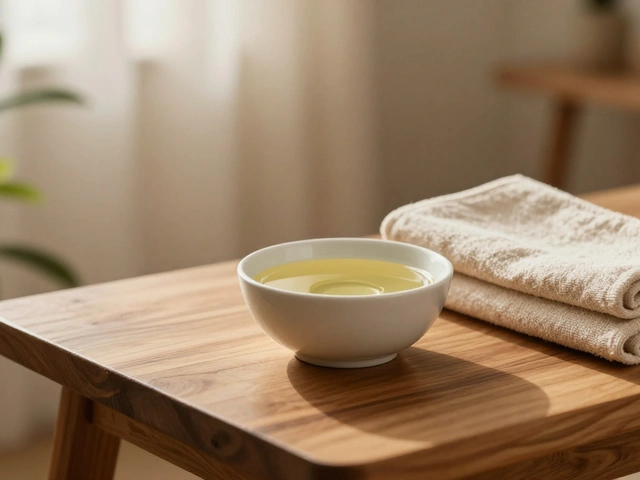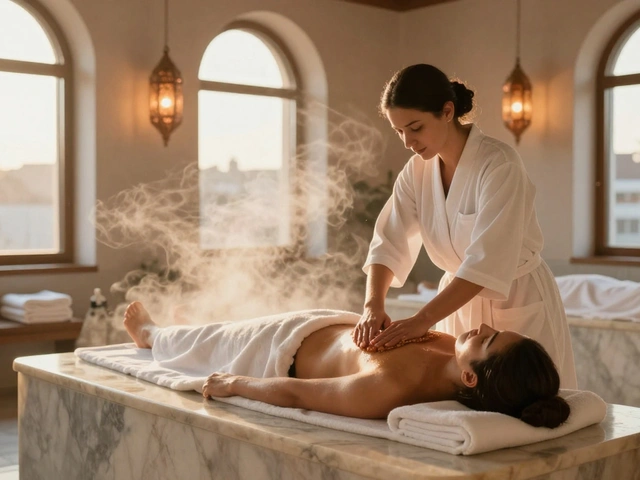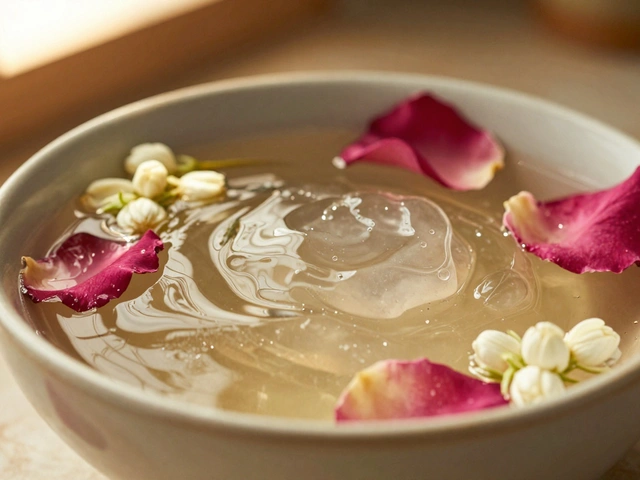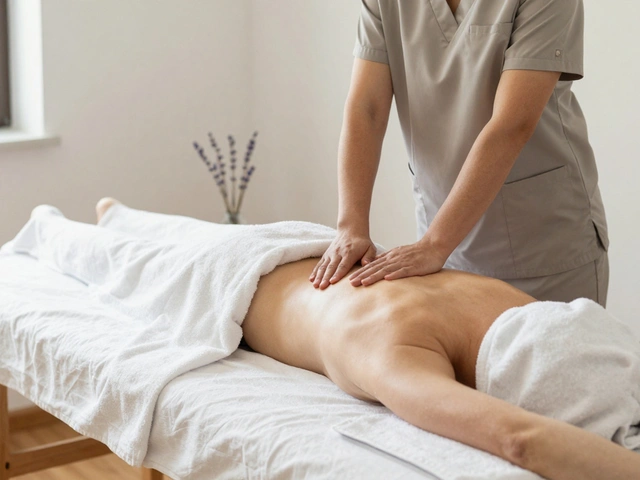Waking up to the sounds of Istanbul—the soft echo of ferry horns, the distant call to prayer, street cats announcing their breakfast—sets the rhythm for a massage therapist’s day. This city is all about movement: the rush of the Grand Bazaar, the rush of boats between two continents, and, for some of us, a different rhythm entirely. Every day in this line of work is a bit like threading a needle: you need calm, focus, and hands that make a difference. Most people think our jobs are just endless hours of rubbing backs in candle-lit rooms. But there’s way more under the surface, and sometimes it’s as intense as the city traffic.
Definition and Context: Massage Therapy in Istanbul
Massage therapy is more than laying on a table and dozing while someone kneads out your knots. It’s a profession—licensed, skilled, and, in Istanbul, influenced by the city’s unique blend of East meets West traditions. Therapists here combine centuries-old Turkish techniques with global methods, making every session a melting pot of styles.
Turkey treats massage like a cultural cornerstone. Everyone knows the famous “hamam” or Turkish bath, but Istanbul has exploded with modern clinics and boutique spas in the last decade. The regulations are clear: you need proper training and must follow health and safety rules. Istanbul’s therapists are trained at government-certified schools—almost all must pass anatomy, physiology, and technique classes. There are even strict hygiene inspections, which can feel more terrifying than a deep-tissue massage on a knot the size of a walnut. Therapists use everything from olive oil to sweet-scented rose water—sometimes mixing traditional with new trends, like CBD-infused oils that are all over Nişantaşı these days.
There’s a reason this city attracts stressed-out locals, jet-lagged tourists, and even famous footballers to its massage tables. Istanbul’s breakneck pace means bodies are tight, tired, and begging for relief. Add to that a climate that flips from muggy to freezing overnight, and you’ve got a recipe for aching shoulders and stiff spines. The job isn’t always just physical; sometimes it feels like you’re part therapist, part friend, listening to regulars chat about their relationships, their bad bosses, or last night’s Galatasaray match. When people say they can find comfort here, they really mean it.
Benefits of Massage Services in Istanbul
Just how much can a massage session change your day—or week? For one, regulars swear by the boost in mood, energy, and sleep quality. There’s plenty of research (including a big 2023 Turkish health survey) showing that people getting weekly massages report 30% less chronic pain, fewer headaches, and better mental clarity. Istanbul’s city hustle seems to melt when you’re on the table; imagine escaping crazy rush hour, and stepping into a place where phones are off, the only sounds are soft music or the trickle of a fountain, and someone is actually focused on you.
Personally, I’ve watched people come in hunched, frowning, physically weighed down by whatever the city is throwing at them. Ninety minutes later, they leave practically skipping—faces brighter, moods softer. Therapists themselves get surprising rewards from this work. Yes, it’s draining at times, but helping someone feel better is addictive—the good kind. A therapist I know, Ayşe, explained how a regular client, a stressed lawyer, nearly cried after her first session. “I’d forgotten what it feels like for my shoulders to drop,” she told us. That’s pretty magical.
It goes deeper, too. For athletes, massage is essential for recovery (you’ll see lots of pros from local football clubs booking twice-weekly sessions). For desk workers who can’t remember the last time they stood up to stretch, massage brings back blood flow and range of motion. Plus, locals say regular hamam-style massages keep colds and flu away, thanks to the steam and scrubs that boost your immune system. Istanbul’s combination of ancient wisdom and new wellness trends really means there’s something for absolutely everyone.
Types of Massage Services Available in Istanbul
If you think all massages are the same, just wait until you see a typical Istanbul spa menu. It’s practically a world tour. The “hamam” comes first—the steamy marble rooms where you get scrubbed, massaged, and left feeling like you shed your old self. These historic Turkish baths date back to the Ottoman era, and nothing beats them for a full detox.
But let’s break it down. Here’s what you’ll commonly find:
- Hamam massage: Full-body wash and scrub with strong, rhythmic massage. Expect bubbles, hot stones, and vigorous techniques. Always go for one if you’re new in town!
- Swedish massage: Gentle, relaxing pressure, great for stress and improving sleep. Most popular choice for first-timers and tourists.
- Deep tissue massage: Focuses on chronic tension, knots, or injuries—ideal for athletes or people who work long hours at a desk.
- Thai massage: Uses stretches and pressure—think yoga meets acupressure but with someone else doing the work for you! Lots of Thai-trained therapists in the city’s trendier areas like Şişli and Kadıköy.
- Sports massage: Targets pain, stiffness, and injury recovery, especially after workouts or competitions.
- Ayurvedic massage: Indian-inspired, often with warm, herbal oils. Focuses on energy flow and full-body wellness. Gaining popularity in health-forward spas.
- Reflexology: Pressure-point focused on your feet—said to help balance the whole body. Handy after a day of sightseeing or shopping.
- Aromatherapy massage: Combines scented oils and soft touch to soothe your nerves—especially good for sleeplessness or anxiety.
Istanbul even has specialist places for physiotherapy massage after surgery and pregnancy massage for new moms. For anyone shy or unsure, you can always ask for a female or male therapist. Therapists here are trained in privacy and sensitivity, whatever your comfort zone is.
How to Find Massage Therapists in Istanbul
So, where do you even start? Istanbul’s options are dizzying—there are luxury spas in five-star hotels, hidden gems in historic neighborhoods, and clinical centers in office districts. Start with neighborhoods: Sultanahmet gives classic hamam experiences under domes, while Nişantaşı or Beşiktaş are overflowing with sleek, modern spa offerings. For something down-to-earth, Kadıköy and Moda (on the Asian side) have small, local places with loyal followings.
Here are some practical tips so you don’t get lost:
- Check reviews: Istanbul is big on word of mouth—use Google, Yelp, or Turkish platforms like Foursquare. Pay attention to comments about cleanliness, professionalism, and actual technique (not just fancy décor).
- Look for certifications: Real therapists have licenses usually displayed in reception. It’s more than a legal thing—it’s about knowledge and safety.
- Book ahead, especially on weekends or just before holidays. Istanbulites treat themselves, and so do the city’s 16 million visitors.
- Ask about oil choices and special needs. If you’re allergic to nuts or scents, just tell them up front—it’s normal here.
- Stick to established places if you’re new to the city. Not all spas are created equal. Look for ones attached to hotels or with lots of positive, detailed reviews.
- Don’t be shy to walk in and ask questions, especially if you’re in tourist-frequented areas.
- Use WhatsApp or online booking for most reputable spas. Many now send confirmation messages and digital info before your appointment.

What to Expect During a Massage Session in Istanbul
Arriving at a spa in Istanbul is an event by itself. First, you’ll likely be offered tea or water—it’s almost a ritual. Filling out a quick health form is standard, covering allergies, injuries, or whether you want more focus on certain areas. They’ll provide a robe, slippers, and sometimes even traditional pestemals (Turkish towels). You’ll head into a calming room or, in hamams, a marble chamber filled with warm, steamy air.
You undress to your comfort level (full nudity is only for the hamam; otherwise, you wear underwear or disposable briefs). Your therapist will check in, confirm your pressure preferences, and if you want to chat, go for it, but silence is totally fine too. The massage itself varies: Swedish or aromatherapy feels slow and gentle, while deep tissue can be quite intense, working deep into muscles with purposeful rhythm. Some places time your session with music, others use gongs or soft lighting changes. It’s all about leaving reality—and stress—at the door.
Afterwards, expect to be offered a glass of water or herbal tea. You’ll usually have time and space to get changed in peace—no one hurries you out. Hamams might include a cool-down period where you lounge on heated marble and chat with friends (or new acquaintances). For repeat visitors, the therapist keeps a note of preferences and problem areas, so things get better each time.
Most places in Istanbul pride themselves on small gestures: a little bowl of Turkish delight, farewell wishes, or sometimes an essential oil sample to take home. Tip culture isn’t mandatory but appreciated (10–15% is polite if the service was excellent).
Pricing and Booking Tips for Massage Therapy in Istanbul
Few cities match Istanbul’s price range for massage services. You can splurge in five-star hotels—with sessions running €100–€200 (₺3,500+), but walk a few streets and find perfectly respectable local spas for around €20–€60 (₺600–₺2,000). Hamam packages are usually priced separately and can include everything from a basic scrub to full “sultan” rituals with head-to-toe treatments. Booking is getting easier: nearly all reputable spas are online, and a third have WhatsApp for quick confirmations.
| Type | Typical Price (TRY) | Typical Price (EUR) | Duration |
|---|---|---|---|
| Hamam (with scrub & massage) | 700–1,500 | 20–45 | 60–90 min |
| Swedish/Deep Tissue Massage | 900–2,000 | 26–58 | 60 min |
| Thai Massage | 1,200–2,200 | 35–65 | 60–90 min |
| Luxury Hotel Spa | 3,500–6,000 | 100–172 | 60–90 min |
Tip: If you’re visiting during Ramadan, school holidays, or a big festival, book at least two days ahead. Local spots can fill fast, especially on weekends. Many spas offer discounted “happy hours” for weekday afternoons. Always check what’s included—sometimes oils, scrubs, and teas are extras (this is more common in tourist zones).
Safety Tips for Massage Clients in Istanbul
Safety gets lots of questions, especially from visitors. Here’s the breakdown:
- Always choose licensed therapists and clean, well-reviewed spas. Don’t compromise, even if prices seem attractive.
- Don’t ever feel pressured into a session—your comfort is everything. Don’t be shy about walking out if you feel uneasy.
- Masseuses and masseurs here are professionals. Privacy, respect, and clear boundaries are standard. If you’re offered anything inappropriate, report it immediately.
- During busy seasons, avoid unmarked “massage” rooms in tourist-heavy zones unless you confirm credentials. Go for branded, reputable studios.
- If you have health issues—heart condition, pregnancy, skin diseases—tell your therapist upfront. Turkish law requires therapists to ask, but you should speak up too.
- Drinking alcohol before a massage is a bad idea—trust me, you won’t enjoy it, and reputable spas will sometimes refuse service if you’re drunk.
- Pain isn’t normal. Deep tissue or hamam sessions can be intense, but you should always let therapists know if it’s too much.
- All tools, towels, and linens must be clean—don’t be afraid to check. Spas that cut corners don’t last in Istanbul, but always double-check.
| Massage Istanbul | Physiotherapy Istanbul |
|---|---|
| Focuses on relaxation, stress relief, and soft tissue recovery | Focuses on rehabilitation, injury treatment, and mobility |
| Therapists usually not medical doctors | Run by medical professionals |
| Common in spas, hamams, and wellness centers | Mostly found in clinics and hospitals |
| Sessions last 30-90 minutes | Sessions last 30-60 minutes |
| Often requires no doctor’s referral | Doctor’s referral usually needed |
FAQ: Massage Therapists in Istanbul
- Do I need to tip my massage therapist in Istanbul? Tipping isn’t mandatory but is appreciated—10–15% is the local standard for excellent service.
- Are massage therapists in Istanbul licensed? Yes—government-legislation requires training and licensing for professional practice. Always check for certificates.
- Are walk-ins accepted, or should I book in advance? Some local places accept walk-ins, but popular spas fill up weeks ahead, especially on weekends and holidays.
- Can I choose a male or female therapist? Absolutely, you just have to request it in advance.
- Is it safe for solo women or foreign tourists? Reputable spas are extremely safe. Istanbul takes hospitality and privacy seriously—stick to reviewed spots, and you’ll have no issues.
- What should I wear to my session? Anything comfortable. You’ll be given slippers and a robe. For hamams, use the traditional towel.
- Is massage therapy covered by insurance? Not usually, unless part of physical therapy in a medical clinic. Private health insurance may cover some types.
- Which massage is best for first-timers? Swedish or aromatherapy masses are gentle and good for beginners. Hamam is an unforgettable local experience.
Ready to shake off Istanbul’s stress? Book a session with a local therapist, and discover just how much energy, balance, and peace you’ve been missing out on.
